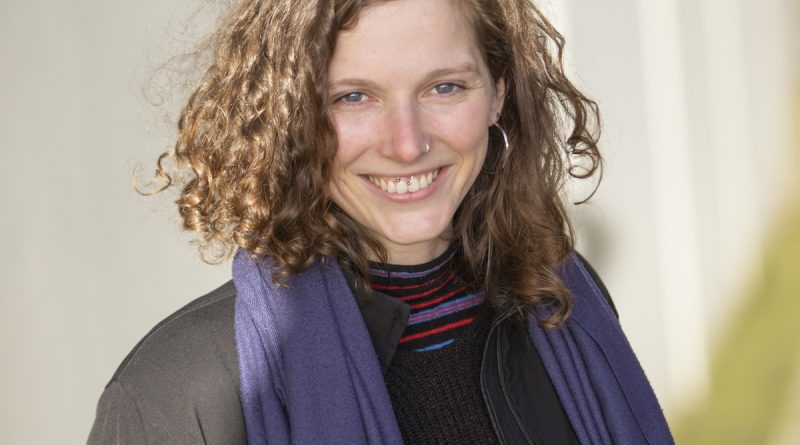MARTE BILLEN KEEPS GENDER ON THE ACV AGENDA
Since a few months, Marte Billen has been ACV’s new gender officer. In that function, she wants to work on equal opportunities at work for men and women. We invited her for a conversation about inclusivity, quota and barriers.
Choosing for a job as gender officer is no neutral decision. What made you take that step?
Marte: “I’m interested in the topic. Always have been, even as a student. I obtained a master’s degree in Gender and diversity. Afterwards, I ended up in youth work. I remained very involved in the topic there too. It’s also an important issue for my friends. It also goes beyond the discussion about men and women. Not everyone feels comfortable in that strict division. Being able to be who you are is important, and it was also the topic of “De Warmste Week” last month. Everyone should be able to be their unique or weird self. Even at work. It doesn’t matter what you are, as long as you do your job.”
In terms of men and women, quite a lot has been achieved, don’t you think?
Marte: “I hear that a lot. And of course, it’s true. If you look at where we come from, many steps have been taken. We’re not in the 1950s anymore. But discrimination is still an issue, even if people think we have come a long way. Take the wage gap, for example. It still exists. That is a real problem, because whether we like it or not, you need sufficient income to enforce financial independence and equal opportunities. And the glass ceiling also continues to exist. There still is no equal flow to higher positions. Women still take on more care responsibilities. So we still have a long way to go. I’m glad that ACV has hired a gender officer again. And not just because it’s me (laughs).”
Do you like working for ACV?
Marte: “It’s much bigger and more massive than I initially thought. It’s an enormous organisation, with so many levels, departments and dimensions. It’s a bit of a maze when you first start, but you learn a lot. About retirement for example, which our current campaign is focused on. Because there is still a gap between men and women in that area as well, despite all the progress that has been made.”
What do you consider important focal points in the gender debate?
Marte: “Of course, I build on my predecessor Jolien Pollet’s legacy. I strongly believe in intersectionality or cross-gender thinking: no one has just one identity. A woman is not just ‘a woman’. She’s also an employee, young or old, with a particular skin colour … There are many factors that define a person. And that’s what I think is so interesting about my job at ACV. I come into contact with many different realities. I meet people from the field of education and blue-collar trade unions, but also highly educated people and executives. Women and other disadvantaged groups run into barriers in all those contexts. It’s very interesting to work with all those differences. We can learn a lot from one another. Exchange good practices. Find ways to address the topic and bring it out in the open. The colleagues at the educator’s trade union (COC), for example, have drawn up a plan. Maybe others can learn from that? “
Where do you see opportunities to work on a better gender balance?
Marte: “Feminism is better for everyone. For men, women, companies … Diversity is a good thing to have. But it also requires an open mind. It goes beyond quota and tokenism. It’s about an inclusive policy, and people feeling comfortable. Meetings at family-friendly hours are better for everyone, no? In order to give people real opportunities, it’s important that companies have an open mind and really make it possible for people to choose a particular job. And I’m not just talking about men and women, but also people of colour, people with a disability … If you only see white men everywhere, the threshold for women of colour will remain high. You won’t see what you can achieve.”
Never Work Alone 2022 | Author: Jan Deceunynck | Image: Daniël Rys

